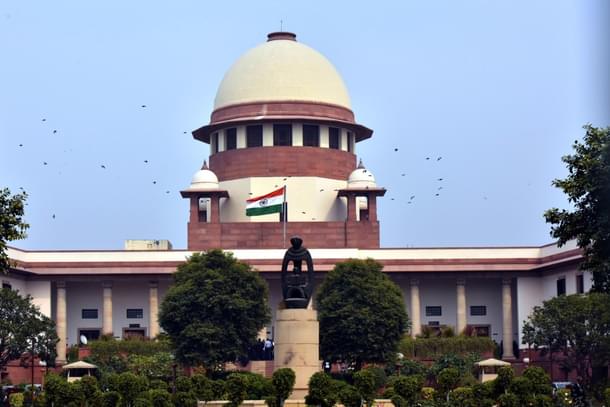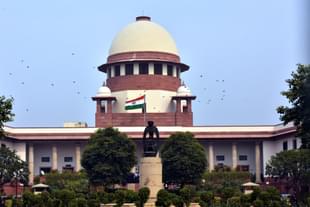News Headlines
Supreme Court To Hear Plea For Free Sanitary Pads For Class 6-12 Girls On 24 July
Swarajya News Staff
Jul 23, 2023, 05:29 PM | Updated 05:29 PM IST
Save & read from anywhere!
Bookmark stories for easy access on any device or the Swarajya app.


The Supreme Court is set to hear a plea on 24 July that seeks to direct states and the centre to provide free sanitary pads to girls in grades 6-12.
Additionally, the plea aims to ensure that all government-aided and residential schools have separate female toilet facilities.
A bench consisting of Chief Justice D Y Chandrachud and Justices J B Pardiwala and Manoj Misra will hear the plea filed by social worker Jaya Thakur.
Previously, the top court had instructed the centre to develop a standard operating procedure and a national model that all states and union territories should adopt for managing menstrual hygiene among girls in schools.
The Supreme Court had on 10 April emphasised the importance of the issue and urged the centre to collaborate with all relevant parties to establish a consistent national policy for managing menstrual hygiene in schools, including government and aided schools.
To facilitate the development of a national policy, the Supreme Court assigned the secretary of the Ministry of Health and Family Welfare as the central coordinator. This individual will work with all states and union territories to gather necessary data for policy formulation.
Acknowledging existing initiatives, the Supreme Court noted that the Ministry of Health and Family Welfare, Ministry of Education, and Ministry of Jal Shakti already have schemes in place to address menstrual hygiene concerns.
The Supreme Court suggested that the union government engage with state governments and union territories to ensure the formulation of a uniform national policy.
It emphasised the need for flexibility, allowing states and territories to make adjustments based on their specific conditions.
In a plea filed by advocate Varinder Kumar Sharma on behalf of Thakur, it is highlighted that adolescent females between the ages of 11 and 18 years from poor backgrounds face significant difficulties in accessing education, which is their right under Article 21A of the Constitution.
“These are adolescent females who are not equipped with and are also not educated by their parents about menstruation and menstrual hygiene.”
"The deprived economic status and illiteracy leads to prevalence of unhygienic and unhealthy practices which has serious health consequences, increase obstinacy and leads to eventual dropping out from schools," the plea said.




